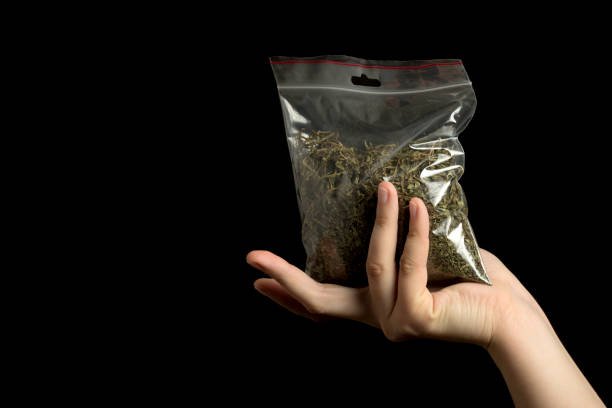Introduction
Ah, the internet—a place where cat videos go viral, people argue over pineapple on pizza, and sometimes, something totally bizarre pops up and makes us go, “Wait… what is this?” One such eyebrow-raising curiosity is none other than Herbciepscam. Yep, you read that right. It’s not a typo, and no, it’s not a newly discovered Pokémon.
- Introduction
- What Exactly Is Herbciepscam?
- A Name That Raises Eyebrows
- A Whisper on the Forums
- The Internet Theories: What Are People Saying?
- 1. The Herbal Elixir Theory 🌿
- 2. The AI Glitch Theory 🤖
- 3. The Satirical Scam Theory 🎭
- Red Flags or Red Herrings?
- So, What Have We Actually Learned from Herbciepscam?
- 1. People Want to Believe in Miracles
- 2. Online Scams Are Getting Weirder and Smarter
- 3. We Love a Good Mystery
- Could You Fall for an Herbciepscam?
- FAQ: Herbciepscam Unmasked
- Lessons from the Herbciepscam Saga
- Don’t Believe the Hype, but Enjoy the Ride
- Conclusion: More Than Just a Weird Word
Whether you’ve stumbled upon this strange term during a late-night Reddit scroll, or you heard your conspiracy-loving cousin whisper it while sipping herbal tea, rest assured: we’re about to unravel the tangled threads behind the mystery that is Herbciepscam.
Is it a scam? A parody? A misunderstood movement? Sit tight, because things are about to get wonderfully weird.
What Exactly Is Herbciepscam?
A Name That Raises Eyebrows
First off, let’s break down the name. “Herb” clearly points toward something plant-based, organic, or medicinal. “Ciep”… now that’s where it gets foggy. Some believe it’s a cryptic acronym. Others argue it’s a glitch in an old herbal database. And “scam”? Well, that’s the cherry on top.
Put together, Herbciepscam sounds like a warning label slapped on a bottle of mystical tea sold by a traveling bard in a fantasy novel.
So what’s the truth?
A Whisper on the Forums
Back in 2023, Herbciepscam began popping up in obscure online forums, often in the same breath as miracle cures and homeopathic remedies. Most users claimed to have “heard of someone” who used it with “questionable” results. Others shared blurry screenshots of a website long since gone offline, filled with flashing green text and testimonials written in all caps.
From there, the term snowballed.
Some said it was a scam herbal supplement. Others swore it was code for a secret society. There were even a few who claimed it was an AI-generated hoax meant to test gullibility.
The Internet Theories: What Are People Saying?
Where truth is murky, theories multiply like rabbits. Let’s dig into the most entertaining (and bizarre) explanations the internet has to offer.
1. The Herbal Elixir Theory 🌿
According to this version, Herbciepscam was a “miracle tonic” sold under-the-radar on shady online stores. Promising everything from hair regrowth to astral projection, the product allegedly had zero scientific backing, mysterious ingredients, and a logo that looked suspiciously like clipart from the ’90s.
2. The AI Glitch Theory 🤖
Another popular explanation: Herbciepscam is nothing more than a randomly generated phrase spat out by a rogue AI. Some digital archaeologists even claimed it appeared on spam emails that read like Shakespeare on cough syrup.
3. The Satirical Scam Theory 🎭
Now here’s the fun one. Some Reddit sleuths insist that Herbciepscam was a joke—an elaborate satire on the supplement industry. Think of it as a performance art piece disguised as a consumer scam, complete with fake testimonials, dramatized refund policies, and absurd claims like, “Can make you 12% more telepathic.”
Red Flags or Red Herrings?
If Herbciepscam was a scam, it had all the hallmarks:
-
Anonymous sellers with zero contact info.
-
Outrageous health claims unsupported by science.
-
No verified purchases or third-party reviews.
-
A vanishing digital footprint, like it never existed.
But just when you think it’s an open-and-shut case, things get weirder. Some users claimed to have received packages from “Herbciepscam LLC,” though no such company has ever been officially registered. A few even posted unboxing videos featuring jars of what looked like dried oregano.
Real? Fake? Or a very elaborate joke? That’s the million-dollar mystery.
So, What Have We Actually Learned from Herbciepscam?
At first glance, the whole thing seems like internet nonsense. But scratch beneath the surface, and you find a goldmine of insights.
1. People Want to Believe in Miracles
Whether it’s a tonic for eternal youth or a cure for Monday blues, folks are drawn to anything that promises quick fixes with no side effects.
2. Online Scams Are Getting Weirder and Smarter
Gone are the days of the “Nigerian Prince” emails. Modern scams use sophisticated design, fake reviews, and psychological hooks—and sometimes, they’re disguised as quirky internet phenomena.
3. We Love a Good Mystery
Let’s be honest: part of the allure of Herbciepscam is that we don’t know what it is. It’s a shared inside joke among digital explorers, a myth that blurs the line between fact and fiction.
Could You Fall for an Herbciepscam?
Here’s a quick checklist to help you spot scams disguised as herbal miracles.
🚨 7 Signs You’re Dealing With a Scam:
-
No scientific data or clinical trials.
-
Suspiciously glowing testimonials.
-
“Limited time only!” pressure tactics.
-
Vague ingredient lists like “Ancient Eastern Herbs.”
-
Untraceable company name.
-
No returns, refunds, or accountability.
-
Ads that show up only at 3 AM and never again.
If your favorite herbal website ticks most of these boxes… run.
FAQ: Herbciepscam Unmasked
Q: Is Herbciepscam a real product?
A: It’s hard to say definitively. No verified listings or scientific mentions exist, though references to it do appear in obscure forums and satirical posts.
Q: Could Herbciepscam be a hoax?
A: Most likely! Given its outlandish claims and lack of credible backing, it seems to be part internet joke, part commentary on alternative medicine marketing.
Q: Is it dangerous?
A: There are no known reports of physical harm, mostly because there’s no verifiable product. But it is dangerous to trust anything online without proper research.
Q: Why is it trending again?
A: Social media loves reviving weird internet folklore. Plus, “Herbciepscam” is just a fun word to say!
Lessons from the Herbciepscam Saga
Don’t Believe the Hype, but Enjoy the Ride
In the grand tapestry of internet oddities, Herbciepscam stands out not because it’s real, but because it feels real enough to make you question everything for a second. It’s a digital ghost story. A reflection of our modern thirst for instant healing, blended with our love of satire and mystery.
Sure, the term might vanish again into the ether, but the cautionary tale it leaves behind? That’s worth remembering.
So next time someone offers you “the ultimate herbal cleanse” for only $39.99 and promises you’ll glow like a moonstone… pause. Do a little digging. Or at least make sure it doesn’t say Herbciepscam anywhere on the label.
Conclusion: More Than Just a Weird Word
In an age where truth is often stranger than fiction, Herbciepscam is the perfect metaphor for the internet’s wild mix of earnest curiosity and chaotic misinformation. Is it a scam? A satire? A social experiment? Perhaps it’s all of the above.
What matters more is what we take away from it: the ability to laugh, to question, and to never take a suspicious herbal supplement at face value—no matter how cool the name sounds.
Because let’s face it, some things are better left in the digital shadows, whispered about, laughed over, and promptly Googled at 2 AM.








